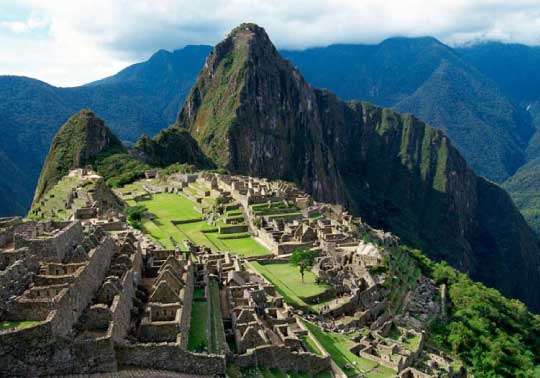The summer of 2009 was a difficult one: but it was one that changed everything.
I was working for a public transport company and the “global economic downturn” was starting to bite. Budgets were cut, jobs were slashed — and my job was among them.
But that summer was also my big adventure. My first big adventure.
I’d wanted to hike the Inca Trail for years: like a lot of things that I wasn’t getting around to. Then I met some other inspiring people, including Tristan Barnes who broke the world record cycling from Sydney to Perth, and decided I should be someone who “does things”.
I signed up to hike the Inca Trail to raise money for Macmillan Cancer Support, in memory of a lost relative.
There was months of training, including hitting the gym before work most mornings, and 8 hour walks in England’s Chiltern hills. This was when the first of my problems began to arise: my knees would get so painful that I would barely be able to walk afterwards, sometimes for several days.
I saw a physiotherapist, but nothing was identified as a problem — and since it always went away, there seemed no urgency. Other than the epic journey I was training for, of course.
One thing I have learned, and definitely learned the hard way, is when you are coming up to a big adventure of this kind you need to take extra care of yourself. Take no chances.
Do not, as I did, be in such a hurry to leave the house one day that you slip on the stairs and fall all the way to the bottom, injuring your foot.
Definitely don’t do that.
Whatever I did, it hurt to put my weight on my foot — and I was leaving for Peru in less than 5 days. The first night after the accident I hoped so hard that when I woke up it would all be OK: the next morning my girlfriend watched with anticipation as I swung my legs out of bed, gingerly put one foot down, then the other…and I cried out in pain and frustration.
I saw a doctor that morning. They examined me, listened carefully to my concerns about the Inca trail, but could do nothing except give me some painkillers and say it would probably be OK. I went back a couple of days later at their suggestion, but all they could do was again give me more, stronger pain killers. And wish me luck.
I was faced with a dilemma. I had raised thousands of pounds for charity, was I now going to say I was unable to go? How would I explain to friends, family and supporters? Even if the trek was only postponed rather than cancelled… I made the other choice: I was going to do this thing one way or another.
One foot in front of the other is an acceptable plan.
In Peru the trip doctors did what they could for me, and identified what caused the pain in my knees: bowed legs coupled with high arches meant that pressure was being put on joints where it shouldn’t normally be.
But there was nothing that could be done except keep going. And I just put one foot in front of the other for 10 days, through jungles, down valleys, up mountains. Through pain, blisters and bruised and broken feet, it was all just one step at a time.
Losing my job wasn’t a great situation. Being in pain on a mountain in Peru wasn’t ideal. And I’m not going to say these things made me a better person, but in some ways I wouldn’t change it.
I was told by people at the time that they’d been made redundant in the past and it had been the best thing that could have happened: and I feel a similar way now. I have gone to achieve bigger and better things than I might have done had I not gone through the adversity at the time.
Similarly, had I found the Inca trail easy and breezed my way through it, perhaps I wouldn’t have learned what I was capable of — perhaps I would have stuck to what was safe and comfortable, even if I was dissatisfied.
That trip started something, and I’m perversely grateful for it all. I don’t agree that things happen “for a reason” and I don’t believe bad things happen because better things are waiting for us.
But sometimes, with adventure, with travel, with our journeys through our careers, what seems like the worst thing takes you down a path you wouldn’t have seen otherwise.
Sometimes it leads to bigger and better things, if you just see what that path leads you.
You can read the story of my journey across the Inca Trail to the lost city of Machu Picchu here, and see some pictures from the trek here.
James Chesters is an explorer, adventurer and writer from London, England and now living in Perth, Australia. He aims to share his stories to inform, entertain and, hopefully, inspire others to explore the world — while also expanding his own horizons. The rest of the time, James is a copywriter, freelance journalist, and community/marketing geek promoting things that are important to him. Read more from James at jaychesters.tumblr.com and follow him on Twitter@jameschesters
Image Credit: http://www.perutravelguide.info/





